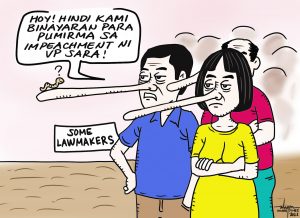ILIGAN CITY (MindaNews) — Political power is at the heart of the autonomy question. It has been said that the Marcos autonomy in Regions IX and XII was no real autonomy, just an administrative arrangement where there is mere delegation rather than real transfer or devolution of power.
Not surprisingly, there were not lacking warnings against a repetition surfacing during public consultations. The RCC-MM Commissioners were well aware that there had to be a devolution of real power.
The constitutional provisions with respect to what powers would be devolved were most clear in this regard. It was merely a matter of balancing central government authority and autonomous powers.
The RCC-MM proposals were contained in Article IV (Government Structure) and Article VI (Inter-Governmental Relations) of the Final Report, very specific and detailed. There was no mutilation in Congress. Although the subject was distributed in Articles IV, V, VI, and XIX of the Organic Act, one would notice that the final version was simpler, sharper and shorter.
One important addition which was not in the RCC-MM version was the immediate transfer of control and supervision of line agencies of the National Government to the Regional Government, namely, those dealing with local government, social services, science and technology, labor, natural resources, and tourism, including personnel, equipment, properties and budgets. The others were scheduled for a later date. And what about budgetary support? We quote from Art. XIX, Sec. 4, Par. 3:
“The National Government shall continue such levels of expenditures as may be necessary to carry out the functions devolved under this Act: Provided, however, That the annual budgetary support shall, as soon as practicable, terminate as to the line agencies or offices devolved to the Regional Government.”
There was also the provision for the creation of an Oversight Committee that would supervise the transfer of powers, functions, properties, assets, liabilities, personnel and so on. One could see that Congress really stretched to the limit the devolution allowed by and within the Constitution.
We close this section by citing Article V, Sec. 2 of RA 6734:
The Autonomous Region is a corporate entity with jurisdiction in all matters devolved to it by the Constitution and this Organic Act as herein enumerated.
1) Administrative organization;
2) Creation of sources of revenues;
3) Ancestral domain and natural resources;
4) Personal, family and property relations;
5) Regional urban and rural planning development;
6) Economic, social and tourism development;
7) Educational policies;
8) Preservation and development of the cultural heritage.
9) Powers, functions and responsibilities now being exercised by the departments of the National government except:
a) Foreign affairs;
b) National defense and security;
c) Postal service;
d) Coinage, and fiscal and monetary policies;
e) Administration of justice;
f) Quarantine;
g) Customs and tariff;
h) Citizenship;
i) Naturalization, immigration and deportation;
j) General auditing, civil service and elections;
k) Foreign trade;
l) Maritime, land and air transportation and communications that affect areas outside the Autonomous Region; and
m) Patents, trademarks, trade names, and copyrights; and
10) Such other matters as may be authorized by law for the promotion of the general welfare of the people of the region.
Still, many people cannot help but wonder and feel insecure about the real implications of those ubiquitous phrases found all over the organic act, namely, “subject to the provisions of the Constitution” and “subject to national laws.” (MindaViews is the opinion section of MindaNews. A peace specialist, Rudy Buhay Rodil is an active Mindanao historian and peace advocate)
TOMORROW: The Gut Level Issue or How to Sustain the Economic Life of the Autonomy

